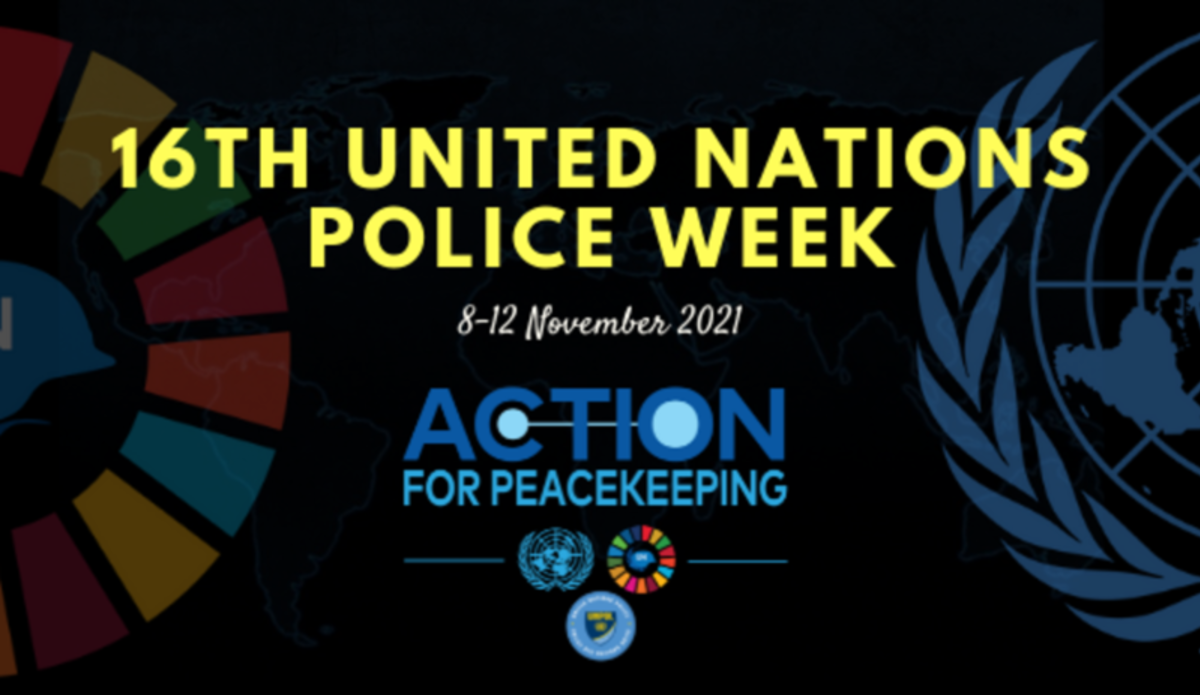Dear colleagues,
Ladies and gentlemen,
I am very pleased to join you for this year’s United Nations Police Week.
I would like to start by commending you and your colleagues for your continued dedication to protecting the communities we serve, particularly during a crisis as complex as the COVID-19 pandemic.
UN Police has been an integral part of the UN’s peace and security work since the first time it was deployed, over 60 years ago. Though your role has evolved significantly in scope and scale, UN Police remains as vital today as it was then.
An aspect of this evolution is how UN policing now increasingly supports the work of special political missions. While these missions are civilian in character and do not have embedded formed police units, they are often requested to provide specialized support to national authorities in areas such as reforming national security institutions and law enforcement. To deliver on these mandates, we have greatly benefited from the expertise provided by UN Police – and in particular from the deployment of police advisers to our missions.
Today, in environments as challenging as Libya and Somalia, UN Police is supporting the work of our missions in a variety of ways: by helping advance respect for human rights in national justice, police and corrections systems; by advising governments on transitional justice and reconciliation issues; and by providing inputs on police-related aspects of peace processes and transitional roadmaps.
In Haiti, for example, our Police and Corrections Advisers have provided important support to the Haitian National Police in areas such as the reduction of gang violence, gender-responsive protection in affected communities, and respect for human rights. They have also assisted the Haitian National Police to improve its diversity, helping increase the percentage of women officers in new graduating classes from 5 to 20 percent.
In Somalia, UNSOM police advisers are supporting the implementation of the New Policing Model, which provides an organizational framework for policing at the national and federated member state level. This is a fundamental part of our mandate to help strengthen federal institutions in the country, and of the blueprint for sustaining peace in Somalia.
Similarly, in Libya, UNSMIL Police, in collaboration with the Libyan Ministry of Interior, have created the first Model Police Station in Tripoli. The police station is now ready to serve a community of approximately 300,000 people – and will serve as a model for other police stations around the country in its rights-based approach.
Colleagues,
The recovery from the COVID-19 pandemic remains a major challenge for us. The pandemic continues to exacerbate vulnerabilities in the communities we serve, and has made the delivery of our mandates more difficult. I remain concerned about its socio-economic impact, and how rising poverty, inequality and marginalization may fuel tensions and potentially violence.
This is why the UN’s robust response to the pandemic has been so vital. Our missions and country teams reacted quickly in order to support host governments in their efforts to fight the virus, and are now helping them to build back better in a sustainable manner.
UN Police is an important part of this response. Across our missions, you have helped Member States address the impact of the pandemic – from advising host countries on how to limit the spread of the virus in correctional facilities to helping strengthen human rights-based policing during states of emergency.
I also want to highlight the important role of the Standing Police Capacity in this area, particularly in its support to Member States in non-mission settings, such as in Angola, Maldives and Zambia.
Colleagues,
Before concluding, I would like to briefly speak about how the UN is currently responding to the converging global threats we see today.
Last year, during the commemorations of the 75th anniversary of the United Nations, the General Assembly adopted an ambitious Declaration that recognized the magnitude of current challenges, the urgent need for collective solutions, and the centrality of the United Nations in addressing these challenges.
In response to the UN75 Declaration, on 10 September, the Secretary-General presented his report on “Our Common Agenda”. The report offers an ambitious vision: a renewed, more inclusive and networked multilateralism at the international level; new social contracts that address exclusion and inequalities at the domestic level; more solidarity towards current and future generations; and a United Nations that is fit for a new era.
On the peace and security front, this comprehensive agenda includes important commitments: a new Agenda for Peace that puts prevention and violence reduction at its centre; a new vision for rule of law assistance to Member States; a concerted effort to enhance women’s participation in decision-making and their involvement in security policies.
Delivering on these commitments will be a significant undertaking. It will require all of us to work together, building on our respective strengths. I look forward to the support of UN Police to this agenda, and to your continuing cooperation with DPPA. I wish you fruitful meetings for the remainder of the UN Police Week.

